Aaron Zhang
CULTURE3D: Cultural Landmarks and Terrain Dataset for 3D Applications
Jan 12, 2025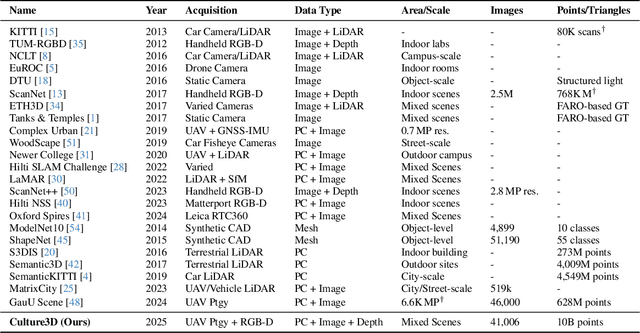
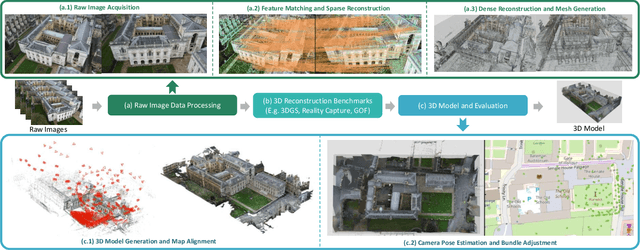
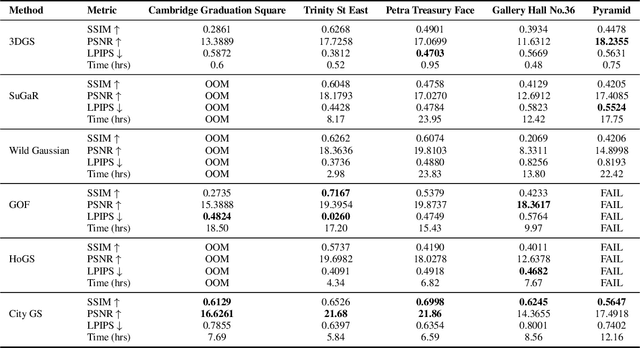
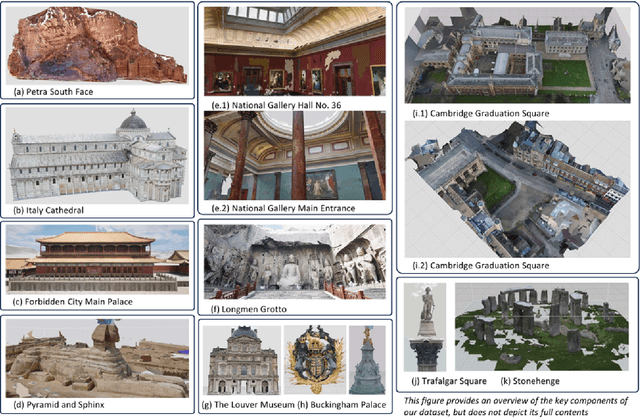
Abstract:In this paper, we present a large-scale fine-grained dataset using high-resolution images captured from locations worldwide. Compared to existing datasets, our dataset offers a significantly larger size and includes a higher level of detail, making it uniquely suited for fine-grained 3D applications. Notably, our dataset is built using drone-captured aerial imagery, which provides a more accurate perspective for capturing real-world site layouts and architectural structures. By reconstructing environments with these detailed images, our dataset supports applications such as the COLMAP format for Gaussian Splatting and the Structure-from-Motion (SfM) method. It is compatible with widely-used techniques including SLAM, Multi-View Stereo, and Neural Radiance Fields (NeRF), enabling accurate 3D reconstructions and point clouds. This makes it a benchmark for reconstruction and segmentation tasks. The dataset enables seamless integration with multi-modal data, supporting a range of 3D applications, from architectural reconstruction to virtual tourism. Its flexibility promotes innovation, facilitating breakthroughs in 3D modeling and analysis.
Stackelberg Punishment and Bully-Proofing Autonomous Vehicles
Aug 23, 2019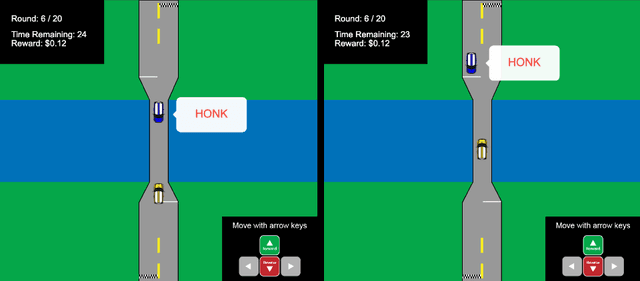
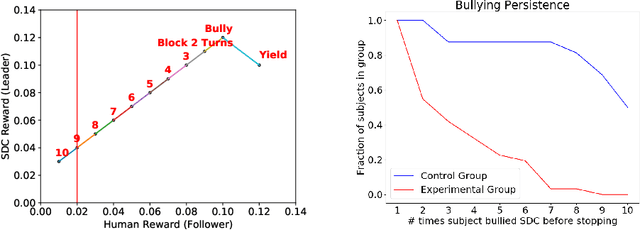
Abstract:Mutually beneficial behavior in repeated games can be enforced via the threat of punishment, as enshrined in game theory's well-known "folk theorem." There is a cost, however, to a player for generating these disincentives. In this work, we seek to minimize this cost by computing a "Stackelberg punishment," in which the player selects a behavior that sufficiently punishes the other player while maximizing its own score under the assumption that the other player will adopt a best response. This idea generalizes the concept of a Stackelberg equilibrium. Known efficient algorithms for computing a Stackelberg equilibrium can be adapted to efficiently produce a Stackelberg punishment. We demonstrate an application of this idea in an experiment involving a virtual autonomous vehicle and human participants. We find that a self-driving car with a Stackelberg punishment policy discourages human drivers from bullying in a driving scenario requiring social negotiation.
 Add to Chrome
Add to Chrome Add to Firefox
Add to Firefox Add to Edge
Add to Edge